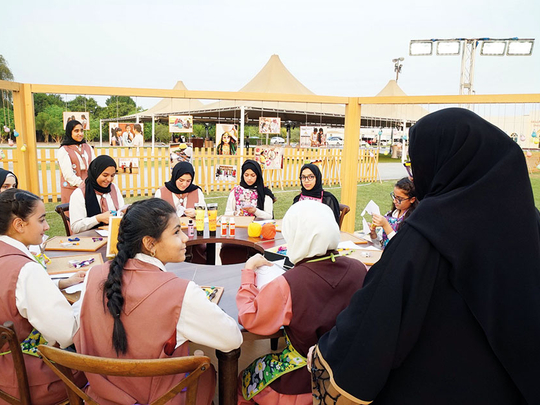
Dubai: A renewed global commitment is needed to protect children from being pushed into the world of forced labour, Shaikha Jawaher Bint Mohammad Al Qasimi, wife of His Highness Dr Shaikh Sultan Bin Mohammad Al Qasimi, Supreme Council Member and Ruler of Sharjah has said.
Shaikha Jawaher made this global plea on the occasion of World Day Against Child Labour, urging greater cooperation among world leaders, decision makers, humanitarian organisations and civil society to work together to end the exploitation of children
“Elimination of child labour requires us to focus attention on the societal triggers of this global epidemic; most notably armed conflicts, poverty, climate change, and limited access to education, welfare, and one’s rights,” she said.
“The benefits of ending child labour are immeasurable. Children who are free from the burden of child labour are able to fully realise their rights to education, leisure, and healthy development, and in turn become the very foundations of a just, equitable society for future generations.”
Shaikha Jawaher shed light on the dismal International Labour Organisation (ILO) child labour statistics, according to which 168 million children are forced into child labour. “Children are not only being exploited as forced labourers; they are subjected to dangerous environments when they are trafficked or recruited as child soldiers,” she noted.
On the reality of children and youth in the world in view of armed conflicts, she said — reforming the world begins with a happy childhood rich with love and care and that many social deformities in people emerge out of the emotional deprivation and marginalisation they suffer in the early years of life.
“The conflicts we see today are led by young people who grew up in broken homes and societies. This signals an immediate need for nations to move much faster with their efforts to build societies in which children’s voices are fully heard, and their rights and aspirations are protected,” Shaikha Jawaher said. “How can we ask the youth to give back to society if we don’t nurture them or embrace their dreams when they are dependent on us for support and direction?”
Last month, Sharjah was named a ‘Child-Friendly City’ (CFC) by the United Nations Children’s Fund (UNICEF) in recognition of its outstanding efforts and accomplishments in the protection and promotion of children’s rights. Three years before this recognition, Sharjah was named ‘Baby-Friendly City’ by the UN and World Health Organisation.
Shaikha Jawaher emphasised how the title is a ground-breaking achievement for the Emirati society, not only in Sharjah but in the UAE.
Sharjah is well known for its many facilities and services that cater specifically to children and families; a reflection of joint efforts by both public and private sector stakeholders to continually offering its children and youth an environment where they feel safe, have access to necessary amenities, can play, learn and grow, and most importantly, where their voice matters.
She noted that preserving Sharjah’s achievements is a collective responsibility of public and private institutions as well as civil society.
Over the past 40 years, Sharjah has become home to many centres and institutions concerned with children, working to provide all forms of protection and care for children from early age until they reach adulthood.








